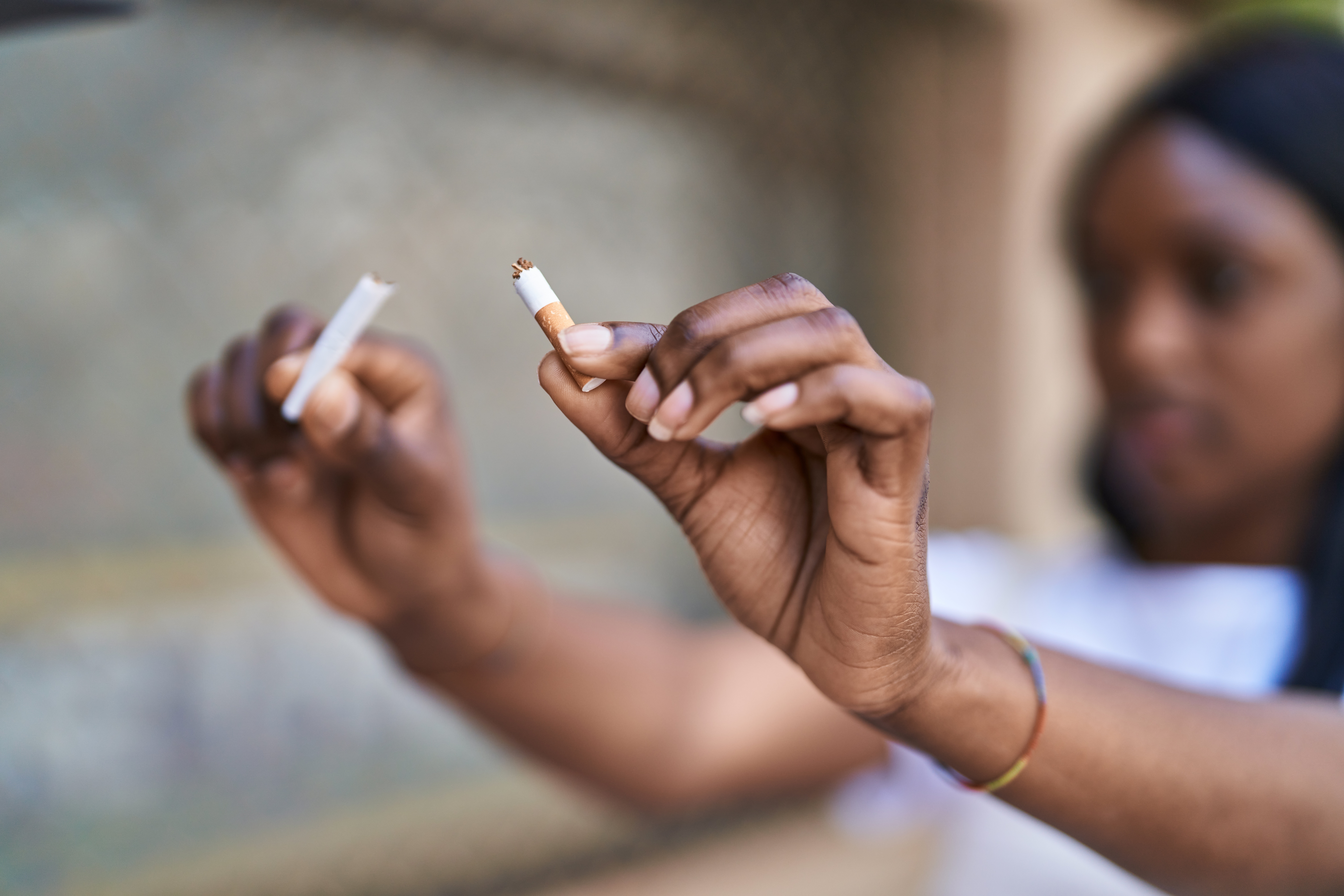Addressing drug and substance use among our children

Young african american woman breaking cigarette at street. Photo: krakenimages.com
The issue of drug and substance use is becoming increasingly prevalent in our society, especially in schools and universities. Many children are involved in drug use, yet parents often remain unaware of what is happening in their lives.
A university student once confided in me that he was struggling with alcohol addiction and was working hard to overcome it. However, despite numerous attempts, he found himself failing time and again. What pained him most was that his parents had no idea about his struggles. Whenever he returned home for holidays, he abstained from drinking entirely, and his parents knew him only as their well-behaved, responsible son.
Other parents have recognized that their children are grappling with substance abuse and have taken various measures to support them. Some have seen only marginal progress, while others have witnessed encouraging changes. Sadly, some have lost all hope and feel inclined to give up. Yet, I consistently urge parents to persevere in their efforts. These young people are their own flesh and blood, and the depth of parental love remains unmatched.
Parents must continue engaging their children in discussions about the risks associated with drug use and alcoholism, and how these habits can negatively impact their futures. However, the approach taken during these conversations is of utmost importance. It’s vital not to convey judgment or condemnation. Using harsh language or adopting an accusatory tone can drive them further away. Many individuals struggling with addiction already battle feelings of shame, rejection, and unworthiness. They often seek validation and care from their parents, but addiction can cloud their judgment and decision-making.
Parents, love your children, counsel them, and address the issue with compassion. Do not speak to them as if you are cursing them or declaring them failures. I know of a young man who overcame addiction because his mother constantly reminded him, “My son, I love you. You are my only son, and I will always love you and pray for you.” Even in the depths of his addiction, these words stayed with him and ultimately led to his transformation. Patience and words of affirmation may be the most powerful tools in your child’s recovery.
Therefore, remember that non-judgmental, non-confrontational, loving guidance combined with prayer and professional help can bring healing not only to the struggling child but also to the entire family. No matter how difficult the journey may seem, never stop believing in the power of love and patience to restore your child’s future.
Seek professional counseling services to get help for your child. Some children benefit from a neutral third party who has the skills to guide them and offer practical tools for recovery. You can also involve someone who was once addicted but has overcome that bondage. In some cases, peers can offer encouragement and walk a journey of accountability with your child. If the situation becomes unmanageable, consider rehabilitation services but do not let your child slip away from your grasp.
I believe in the power of prayer and the gospel. These can truly transform someone’s life. Saul was a persecutor of the church, but when he encountered Christ Jesus, his life was never the same. His name was also changed to Paul (Acts 9). Pray for your child without ceasing. Continue speaking about salvation and encourage them to attend church. Your efforts will never be in vain.
The writer is the Executive Director of Hope Regeneration Africa, a parenting coach, marriage counselor, and founder of the Men of Purpose Mentorship Program.




